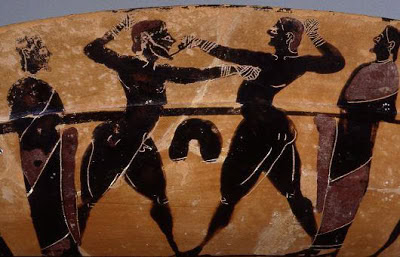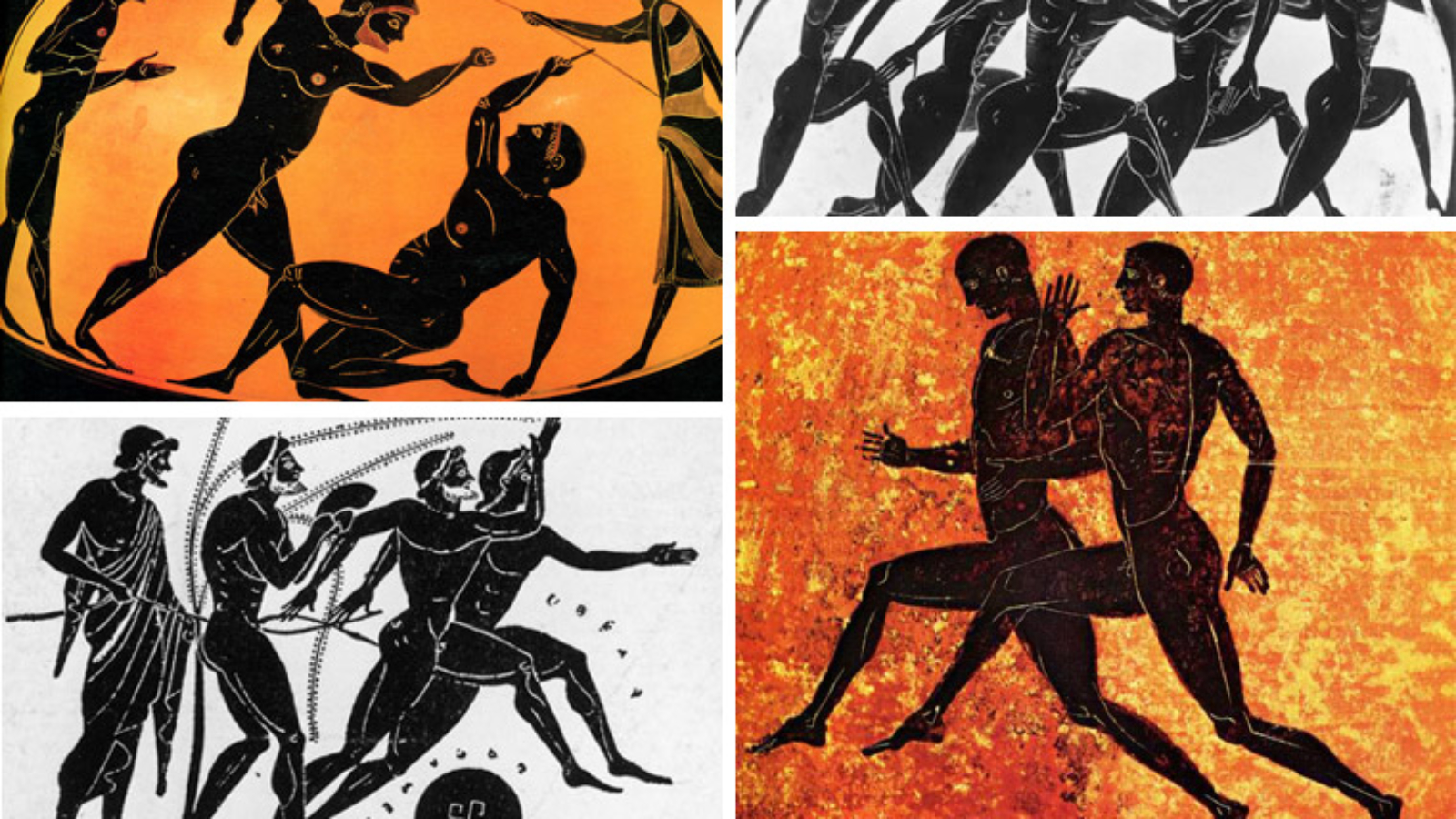An interesting article published in Italian blog Salvatore Lo Leggio shows that corruption is not the prerogative of the modern age, be in sports, politics or culture.
Everything is interconnected when ego speaks louder, greed and vanity. Reading serves as a reflection on the subject in time of Olympic Games.

Salvatore transcribed an interview published a few years ago made by Pasquale Coccia, with the Italian professor of Greek literature at the University of Trento, Roberta Sevieri, author of the volume Epinici, which deals with the relationship between politics, corruption and sport in antiquity. The material is a precious historical document.
What is the relationship between sport and corruption in ancient Greece?
The first corrupts were the judges. Since the first edition of the Olympic Games in 776 b.C, for athletes, all aristocrats, victory was very important on various aspects. The winners of a race, by building a statue or composing of a song, the epinicion (lyrical component to celebrate the victory of a competition in ancient Greece), which celabrated the sport and guaranteed immortality in the future. Moreover, the victory also represented an opportunity to become a celebrity for the aristocratic family of the winner, for friends, finally to the city and the people. Everyone had their share of notoriety as it is today.
Pausania (second century BC.), in his Periegesis work of Greece, a kind of tour guide for visits in Olimpia, remembered when entering the stadium there was the Zanes calls statues, built with the fines imposed on athletes who had tried to corrupt judges and other competitors to ensure victory. The first Zanes, six in total, were built in 338.C., then a few more, between episodes publicly accused of corruption. There was a gap until the year 12 a. C., not because there was not a case of corruption but because the corrupt and corrupting made some deals.
In Pausania they have about 200 Zanes built in Olympia, a number that gives us the thermometer level of corruption among athletes and judges.
Why the strong involvement between sports and politics in ancient Greece?
Sport, in comparison to other fields such as theater, although very present in Greek public life, was more engaging emotionally. The aim of linking the sport to “policy” was to celebrate victory in public because everyone knew. There were public holidays, celebrations that lasted several days, the center of which was the Olympic champion, so to win a competition governos were willing to bet all on the athlete.
Tyrants and emperors ruled by force, why did they have so much need to win to appease to their people?
Someone like Hiero II, tyrant of Syracuse, known for his ferocity, had a great need to win an Olympic competition for two reasons: he wanted to get credit from the Greek community because he felt provincial in Hellenic Greece, or simply to give himself a robe which now we call international.
Besides, he was a tyrant and then the walls of the palace knew that Olimpia victory and the public celebration had involved the city’s community who ruled in a way to ensure a good name for posterity. The victory was his and had a meaning and the public had recognized it. This is an example, Hiero, but cases like his were so many of those who were willing to do anything to win.
Other cases of sports corruption?
It was popular among aristocratic families participate in horse racing, some as Alcmenoidi who won often. A case that deserves attention was the Milciades, son of Cimon, who won Olympic 532 B.C and also the first place in the following Olympics. On that occasion Cimone gave the victory from his chariot to Pisistratus, tyrant of Athens, so it was not awarded the jockey, what was usually a slave, but the owner of the team. Because of that was enough to declare that the owner of the horses was Pisistratus to give him the victory. In exchange Peisistratos pledged to bring back from exile Cimone, an exchange of favors that today is very common in politics.
In your studies you searched “epinici,” what were they?
It was a song or an opera celebrating the victory of athletic winner. As a literary genre lasted very little. It was short life between the V and VI century. B.C. The “epenecio” was written on the winner commission, sung in outdoor choir, in a festive atmosphere, accompanied by dances. Usually in a prominent public place for all to see, enjoy and know the powers that had won an Olympic race.
The choir and dance called a large audience, the same as today went out to the streets after a victory of a football team. Then the winner was shown in public and attended the celebrations, as today the winning team parade on stage in front of the crowd.
The epinicio represented a mass communication way, it was the triumph of athletic competition. The reading of the epinicio also occurred in court and was reserved for a more educated public. In those days was a way to “make a living room.”
What is the relationship between the commissioned epinicio to poets of winner of the Olympic and sports journalism today?
In ancient Greece, the relationship between who developed work and the poet was very clear. The winner commissioned the work and the other wrote, behind a luxury gain. Today, everything is much more ambiguous, the tones of sports journalists are triumphant. There is a cheering that belongs, but lack an objective description of what happens on the field. Who wrote one epinicio while extolling the athletic ability of the winning client, was placed in the limits desired by Zeus. In the ode to the Olympic winner remembered that life was short, the glory was temporary.
Today the sports press contributes a lot to the image of the famous football player, rich, surrounded by sycophants. The champion who lives a kind of immortality in the imagination of fans. Players feel omnipotent, only discovered in football begin to manifest all their weaknesses, as well as athletes or as riders like Armstrong, who later we discovered he had used doping.
Was discovered some accomplice written in epinici?
It was common knowledge that Bacchilide, Simonides’s nephew, with Pindar, all three epinici writers, they were paid by the winners, so that the founding myth of epinicio was a lie. The authors extolled the sporting qualities of the winners, but kept the silent on some improprieties committed because the dominant idea was that the winners authorize the recourse to illegal means.
The epinicion had a celebration function, uninformative, so the accuracy of the description, chronic sporting event passed to the second plan, although it was rare that they could lie in everything. Today we are witnessing huge misinformation, especially in politics and sport is a reflection, to total distortion of what happens.
From sports to politics, the corrupt, the turncoats are not only from today?
Certainly, though in ancient Greece they were more refined, more political. An example is the Alcibiades, who in the Olympic Games in 416 B.C ran with seven cars in his name, receiving the first, second and fourth prize. On behalf of the Olympic victory asks and get from the Athenians the condition of being named one of the commanders of the three fleets that sailed to conquer Sicily, but the expedition was a failure.
Alcibiades was a politician who several times had passed the Athenians to the Spartans, to finally return to the Athenians, a traitor. But changing situation to another he did with style. Today they are a bit rude.

